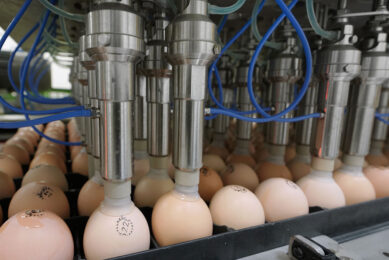Evolution in the evaluation of phytogenics

Phytogenics can offer a very valuable tool for nutritionists designing strategies to reduce the need for antibiotic growth promotors in animal protein production. However, there is a need to validate reliable biomarkers to measure efficacy and safety of phytogenics. Here a scientific and commercial view on the progress made so far.
Despite consumer surveys voicing very positive opinions and acceptance for the use of plant derived additives / botanical compounds in animal feed as alternatives to antibiotic growth promotors, recent surveys suggest confusion about their efficacy among producers. Producers and feed manufacturers revealed that the top reasons for not using phytogenics in animal feed are uncertainty about which product to choose and the perceived lack of sufficient commercial and scientific data to support the efficacy of the products.
Why the confusion?
There are indeed a great number of products entering this rapidly growing segment of the feed industry. Components used in phytogenics are generally approved for use in animal feed as sensory additives or flavours, which does not require any proof of efficacy. However, it is well known that the bioactive components of herbs and spices can have functional properties besides their flavouring properties. The science and knowledge that goes into the application of those functional properties determines whether a real economic benefit besides the flavouring aspects can be expected from their use in feed formulations. Much has happened in the type of methodologies used to evaluate phytogenics since they first entered the feed industry. Not many are aware of this because there are not that many companies, who really took the time and money to invest in this. However, the progress that has been made is key to the appropriate application of phytogenics to animal feed for economic advantages and sustainable competitive animal production.
A scientific perspective
Dr Kostas Mountzouris is an Associate Professor of animal nutritional biotechnology at the Agricultural University of Athens (AUA) in Greece. He has been working there since 2002 and remembers his first research trial with phytogenics, which was more than ten years ago. Dr Mountzouris published numerous abstracts at scientific conferences and several peer reviewed scientific publications with more in the pipeline in this field of research primarily in broiler chickens. He is also an expert evaluator of research proposals submitted under the EC research framework programmes on multiple occasions and has conducted research for several other alternatives to antibiotic growth promotors, such as enzymes, direct fed microbials and organic acids. Dr Mountzouris believes that research on phytogenics offers significant benefits for our society, as it triggers education and ideas on sustainable farming practices beneficial to public health. It contributes to a better understanding of health issues and finding ways to prevent them in a consumer responsible approach. ”Phytogenics can offer a very valuable tool for nutritionists designing strategies to reduce the need for antibiotic growth promotors in animal protein production.
However, they cannot be treated as a silver bullet. New and powerful analytical methods and techniques are catalysing the progress in our understanding of the mechanics of action for phytogenics in animals and humans. Our initial research relied only on performance parameters and nutrient digestibility, but with evolving new technologies we were also able to research important gut ecology indices, such as microbiota composition, metabolic activities as well as antioxidant capacity of tissues and blood. The most recent developments helped us to study the relative expression of genes related to gut integrity, inflammation, nutrient transport and antioxidant enzymes,” says Dr Mountzouris. He adds that this lead to the most interesting findings of his research work relating to phytogenics so far. “We were excited to discover that the positive changes seen in antioxidant capacity in response to phytogenics were concomitant with an up-regulation in the gene expression of antioxidant enzymes.
Moreover, we have discovered that the gene expression pattern of key antioxidant enzymes depends on the intestinal segment, the type of phytogenic compounds and their inclusion level in the diet.” Currently there is a lot of ongoing research in the field of phytogenics and there is general agreement on the need to validate reliable biomarkers to measure efficacy and safety of phytogenics. Dr Mountzouris says: “I would propose that future studies should be designed to find correlations between growth performance parameters and critical biological responses. I also think that there should be some minimum requirements and standards for trial designs agreed at least among the major scientific journals to enable strong meta-analysis between studies. This would benefit all stakeholders involved in this area of research.”
A commercial perspective
Today the term phytogenic feed additive is fairly established in the feed industry. However, around 10-15 years ago, there were hardly any data for proof of efficacy in pig and poultry nutrition and a severe lack of understanding of the mode of action in farm animals. This and overblown expectations led to a less than ideal start in the commercial world for some of the early phytogenic feed additives. Yes, certain compounds show antimicrobial action in vitro, however it often requires concentrations that are less practical or cost-effective when applied to animal nutrition.
Hence claims made by sales people at the time such as “their antimicrobial action kills bad bacteria and solves diarrhoea problems in a natural way,” were quickly backfiring at the producer level. This is why research trials investigating parameters for the mode of action of certain plant compound combinations in vivo are so important.
These type of trials gradually helped to build more credible and sustainable arguments in the promotion of those products. It also meant that the products were applied in such a way that real economic benefits were seen in research trials and at the farm level. Since then, the industry has come a long way in evaluating phytogenic feed additives, thanks to companies who have seriously been investing research money into this. New research methodologies that are increasing the understanding of how bioactive substances from herbs and spices work alone and in concert at the cellular level in animals are helping companies working in this field to design products and efficacy trials to maximise the potential benefits from phytogenics in animal nutrition.
Lessons learned • Phytogenic compounds can have an impact on acceptance, because of their flavour characteristics. It is important to understand which flavours/compounds might have a negative impact on feed intake and find ways to know the acceptable dose, mask their taste or replace them altogether in the formula. • Doses of certain phytogenic compounds seen to be effective in vitro may not be practical or cost-effective to show real benefits in vivo. • Importance of understanding baseline responses in animals to phytogenics under both non-challenging conditions and under a challenge. • Composition of phytogenic products and optimal inclusion level, matter for their efficacy. This can be determined through relevant dose response trials by species. • Related research has great potential to educate the feed industry, farmers and consumers and therefore to benefit society as a whole. |
Join 26,000+ subscribers
Subscribe to our newsletter to stay updated about all the need-to-know content in the feed sector, three times a week. Beheer
Beheer









 WP Admin
WP Admin  Bewerk bericht
Bewerk bericht